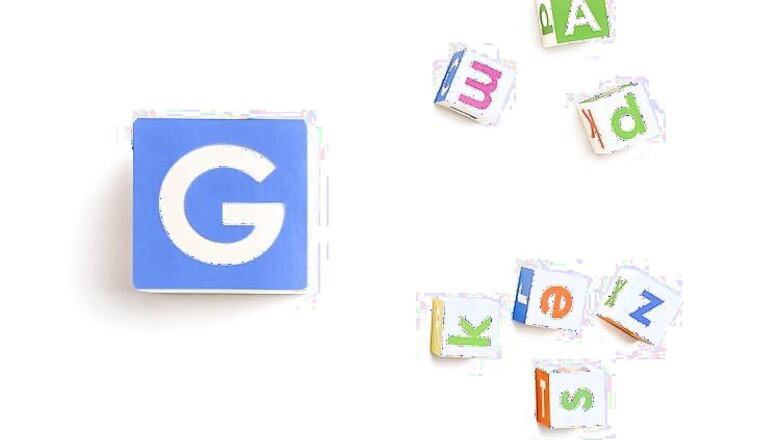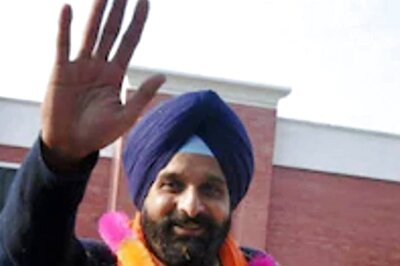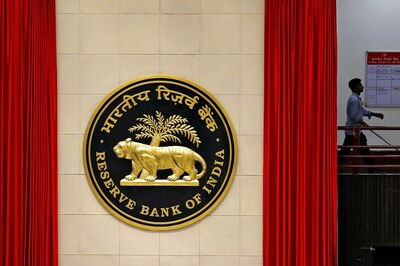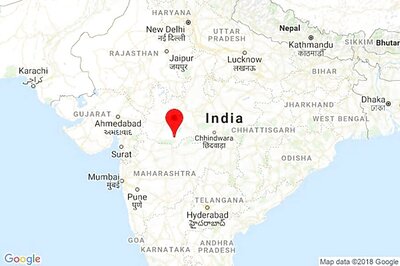
views
Google has emerged as the primary and elementary platform to 'ask' a question, be it in the elections-going USA or liberal Uruguay (legalised homosexual marriages, abortions and cannabis) or to college-goers in India or an asylum-seeker in Syria. It is not surprising if you don't get an answer, from someone, for your question you ask Google. Students and scholars, travellers and pilgrims, conscientious voters and champions of social-cause and other 'digitally not-deprived denizens' google on Google for basic information: about places and people and for any other elementary or eloquent data.
Imagined a life without Google? There are other search engines such as Baidu (in mainland China where Google is barred), Yahoo, Yandex (Europe & Russia), and Bing, but Google is the world's most popular search engine, and almost synonymous for a search engine like Xerox for photocopy and Scissors for a cigarette (during the uninterrupted Congress-rule in India: 1947-1977).
There is no one who could answer as many questions in the world except for Google. The sheer number of questions it handles a second could make a netizen to remove his goggles and wipe the sweat on the brow: Google answers (how authentic are its indexed answers, or how reliable is the information extracted by Google from the digital world, is debatable).
Google takes more than 40,000 questions a second: watch the live score of questions posed to Google at InternetLiveStats.com apart from other data it broadcasts: people posting photos, blogs, being active on Facebook, carbon dioxide emitted as a result of Internet… At this rate, Google processes over 3.5 billion searches per day and 1.2 trillion searches per year. So many people engaged and engrossed with Internet-enabled gadgets either for livelihood or for lounging (the physical space for assembling is becoming rarer saving for stadiums of sports, music arenas and epicentres of political rallies and protests in democratic countries; the religious spots and malls).
Indeed, Internet-connected people (Digital divide exists in the developing and under-developed world including India) invariably search for many things: silly and superior, about him and her, for a shack and a shawl, to prepare an essay on the 'utility of news' in googlised and googlising world to remedies for hair-loss. Who would have been answering more than 40,000 questions a second, without Google? What a relief it brought to parents and educators, and saved them from googlies.
Google is more than a 'trade name' now: functions as noun (Google) and verb (google, googles, googled, googling).
Google & Theory of Relativity:
According to InternetLiveStats.com, it took Google one month to crawl and build an index of about 50 million pages in 1999 but by 2012 the same task was accomplished in less than one minute. Interestingly, human beings are asking never-before-asked queries: '16% to 20% of queries that get asked every day have never been asked before'. Every query has to travel on average 1,500 miles to a data centre and back to return the answer to the user. A single Google query uses 1,000 computers in 0.2 seconds to retrieve an answer.
If Google refines and enriches itself at this speed, probably it will pip Albert Einstein's Theory of Relativity: no particle in the universe can travel at the speed of light. At its current speed, Google is only ten times slower than the speed of light. Google travels 1.2x107 metre per second to get an answer while light travels at 1x108 metres per second. How far are we to catch up with 'light'?
Founded on 5 September 1998, Google's popularity could be attributable to its speed, effectiveness, and also by giving the user the options to search for Web (text), news, videos, images, maps, books, flights, apps and enabling the user to search according to the country and time (since when: past hour or past 24 hours).
Alphabet
Is it good for the world to have a pervasive search engine like Google? Countries have a choice either to allow it, or block it such as in China (but not in Hong Kong and Macau). Google, the company founded by Larry Page and (Russia born) Sergey Brin in 1998 has grown bigger and bigger; and they had to restructure the company under Alphabet.
Larry Page explained in his blog, "We liked the name Alphabet because it means a collection of letters that represent language, one of humanity's most important innovations, and is the core of how we index with Google search! We also like that it means alpha-bet (Alpha is investment return above benchmark), which we strive for!"
Alphabet is a collection of companies among them the largest is Google but slimmed down. A reason for the success of Google, or Alphabet, is its investment in 'Research and Development' unlike the IT companies in India. Alphabet is doing what none of its peers are working on: Life sciences (glucose-sensing contact lens) and Calico (focused on longevity).
Slimmed down Google
Google, one of the verticals of Alphabet, is headed by India-born Sundar Pichai (usual story: IIT graduate but in the US unlike Arvind Kejriwal). Pichai's appointment as the CEO of Google compelled the media professionals to crowd-source his bio. Otherwise what the world knew about him was from Larry Page: "Sundar has been saying the things I would have said (and sometimes better!)… has really stepped up since October of last year, when he took on product and engineering responsibility for our Internet businesses. Sergey and I have been super excited about his progress and dedication to the company. And it is clear to us and our board that it is time for Sundar to be CEO of Google. I feel very fortunate to have someone as talented as he is…" His appointment saw a slight rise in the share prices of Google: a good omen for the company, or at least he was welcomed for his abilities and skills to lead it.
The executive heads of 'nation states' usually congratulate their comrades or peers when he or she gets elected but they are also congratulating CEOs of companies (private entities - national, transnational, multinational or worldwide - in which the public representatives have no role: minimum government, maximum governance) reflecting the diminishing role of supremacy of a 'nation state'. Prime Minister Narendra Modi tweeted: Congratulations @sundarpichai. My best wishes for the new role at @google. Sundar responded: Thanks for the warm wishes and hope to have the opportunity to meet you soon.
Unless the 'Digital Divide' is demolished in India, and in the world, there is no scope for Google to keep growing. However, it is sticking to its code of conduct: 'Don't be evil' (facing antitrust cases in Europe). Evil against whom? Its nearest competitors in the online advertising world? Bombarding searchers with unsolicited and unwanted adverts and websites? Don't be evil! You may flourish unless…
(Kovuuri G Reddy is the author of 'Handbook of Journalism and Media: India, Bharat, Hindustan')




















Comments
0 comment